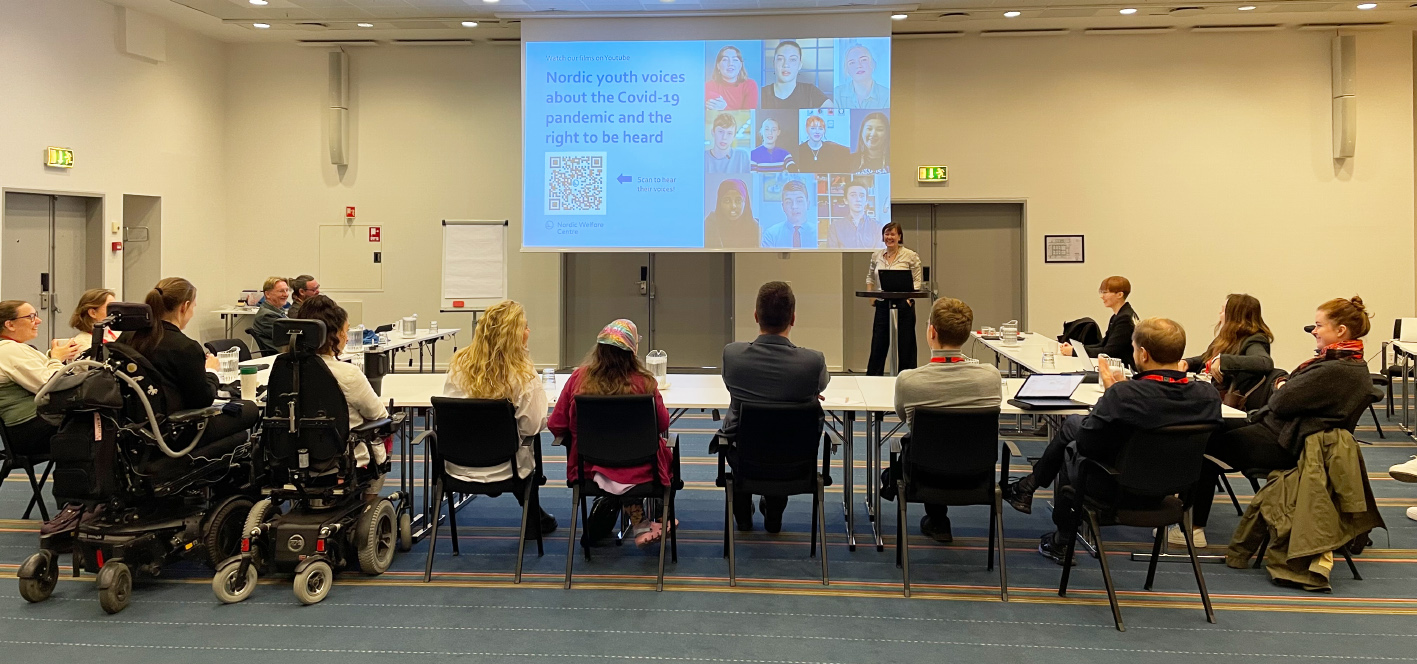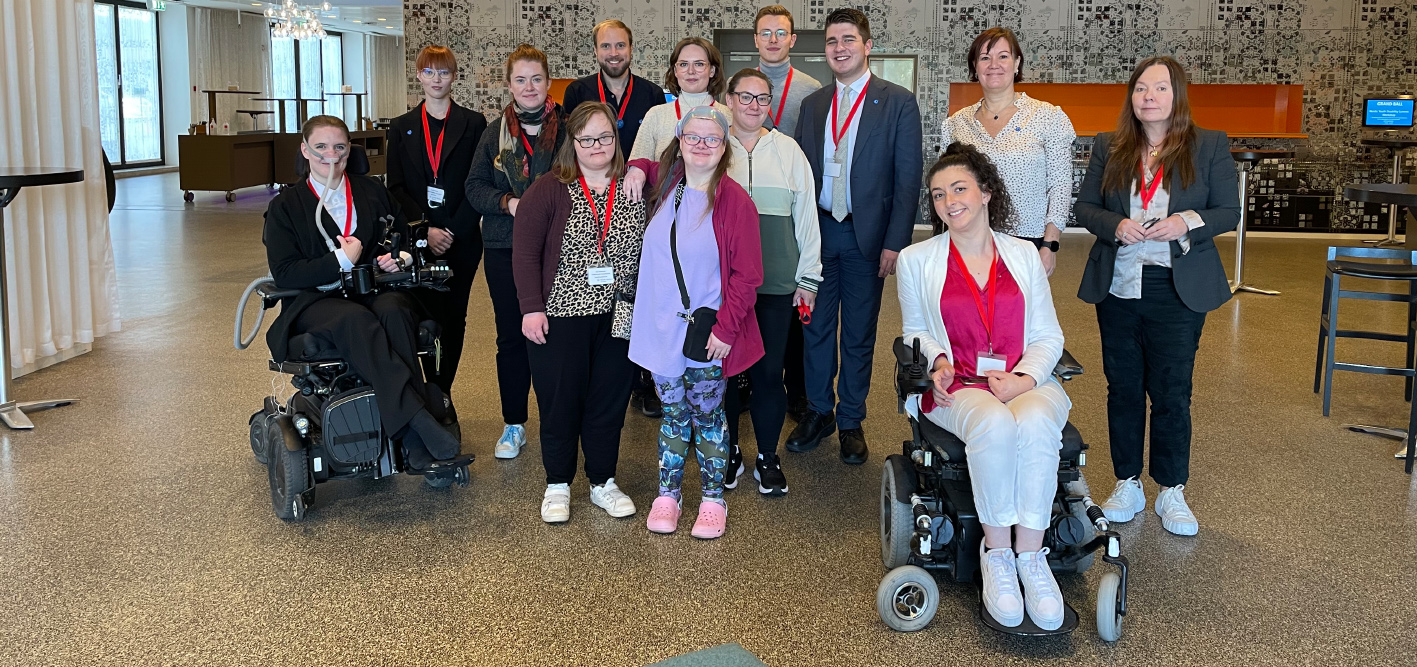Current issues and challenges for youth with disabilities
The representatives of organisations for young people with disabilities exchanged and discussed key issues and challenges. The list of key issues and themes was presented to the Disability Council and the Secretariat of the Nordic Council of Ministers.
Key issues/agendas
- Bullying
- Loneliness
- Peer support
- Important and powerful to meet others with similar or different disabilities.
- Peer support could be something for disability organisations for young people to work together on.
- Following the political “track” means that the issues must both be addressed to the disability council and worked on by disability organisations for young people.
- Employment/working life
- Educational politics
- Personal assistance
• Making a Nordic model; take the best elements from the different Nordic countries.
- Travelling
- Accessibility
- Personal assistance

Creating inclusive student councils with power
The representatives of organisations for young people with disabilities and the Nordic expert group – Children and young people's right to be heard, the consequences of the corona crisis, had a productive workshop on the issue: How can the work of student councils be strengthened in a way that contributes to an equal and inclusive learning environment for all students, especially young people in vulnerable life situations and children and young people with disabilities?
Together they produced the following recommendations:
Further development of student council work in the Nordic region – lessons learnt from the pandemic on the right of children and young people to be heardThe Nordic Welfare Centre is currently investigating how student councils in the Nordic region can become more influential and inclusive. The aim of the investigation is to prepare a report on how educational institutions in the Nordic region can use student councils to strengthen children and young people's right to be seen, heard and involved in all matters that affect them, in accordance with Article 12 of the UN Convention on the Rights of the Child. We have started gathering recommendations for the report from civil society organisations for children and young people. The recommendations will be published in a report, along with updated research and promising practices. The first recommendations were collected at the Nordic Youth Disability Summit in Copenhagen in 2023. Action points from the Nordic Youth Disability Summit, Copenhagen 2023
– Meetings should take place at a time and place that suits all children, and all children should be able to attend meetings without negative consequences. For instance, student council meetings should take place outside school hours, so that the students will not be missing lessons if attending.
– More information is needed for students about the role of student councils, how they work and their influence on decisions made at school. – Strengthen the expertise of students and teachers in leading decision-making processes. – School management must have knowledge of the role of student councils and students' right to participation and influence at school. |
– There is a need to increase the legitimacy of student councils by ensuring democratic and inclusive nomination, voting and election of student representatives. –The nomination and election of student councillors must be formal and inclusive. It is often the case that there is limited representation of persons with disabilities. Perhaps they should have a separate seat on the student council? – Educational institutions must ensure that students who are not elected to student councils can still offer their input and convey their opinions to the council. This can be done by appointing working groups. – A representative student council allows everyone to be heard. The election process can be intimidating for many students, and it can be difficult to participate in the process.
– Give students the opportunity to express their views on various issues. – Educational institutions must strive for more continuity if their student council’s work is to be effective. – Schools should involve students and ask them for their views on all issues that affect them on a regular basis.
– School institutions need to ensure that the conditions for inclusion are in place on a structural level. This cannot be the responsibility of students because they are in the process of becoming democratic citizens, and teachers/schools are their guides. – Inclusion must be a goal of school institutions and they must be prepared to support this goal in whatever way necessary. – Accessibility should be improved to support participation. All student council activities should be accessible to all, regardless of disability. – Mental health issues should be taken into account. Students should be seen as individuals and not put into boxes See all students as individuals and don't put them into boxes based on their academic achievements. |
Many of the success factors for child and youth participation are the same, regardless of whether there is a crisis such as the Covid-19 pandemic. The structures and measures that need to be in place should follow the nine principles for meaningful participation developed by the UN Committee on the Rights of the Child, for schools’ special attention should be given on realising the requirements in education and school (General Comment No. 12, chapter 4. pages 21–22). The principles are developed in General Comment No. 12 to the Convention on the Rights of the Child (2009) and comprise fundamental conditions that should guide all processes in which children are involved. Even though the principles have been developed with children under 18 in mind, the principles are also relevant for participatory processes with youth over 18 years of age. |
